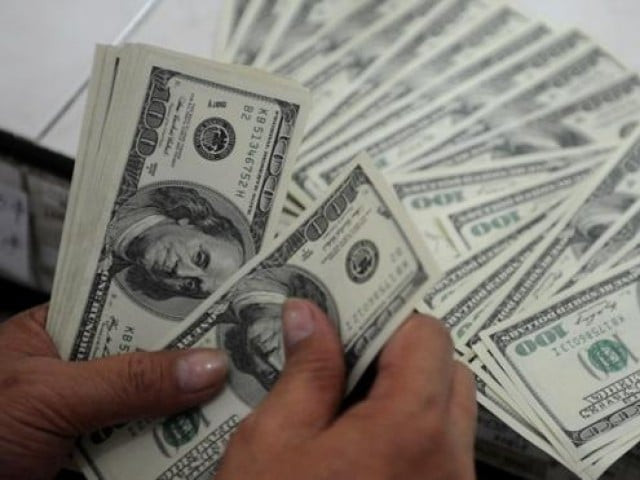Pakistan sees outflow of $16m in November
FDI turns negative after two years as power, telecom firms transfer funds abroad

After receiving back-to-back good news on the economic front during the Covid-19 pandemic, Pakistan has been hit by grim news as net foreign investment turned negative at $16 million in November 2020.
Foreign direct investment (FDI) has become negative after a gap of two years after power and telecom firms operating in Pakistan apparently transferred funds to their parent companies in China and Norway respectively.
Short-term investors were, however, seen again making small investments in the government debt securities like treasury bills and Pakistan Investment Bonds (PIBs) in November.
Pakistan’s central bank reported on Wednesday that net FDI stood negative at $16 million in November compared to positive $192.4 million in the same month of last year.
The development came after foreign investors poured 10-month high FDI worth $317.4 million last month - October 2020.
Cumulatively, in first five months (Jul-Nov) of current fiscal year 2020-21, net FDI dropped 17% to $717.1 million compared to $864.4 million in the same period of last year.
“For whatever reasons, this (negative $16 million) is a bad number,” Pak-Kuwait Investment Company Head of Research Samiullah Tariq said while talking to The Express Tribune.
“The apparent reason behind the negative FDI is that foreign firms operating in Pakistan have returned debt to their parent companies abroad…or made an inter-company loan.”
Apparently, a Chinese firm setting up a power project based on local coal (Thar coal) and a Norway-based mobile phone company made an outward transaction in FDI, he said.
To recall, the parent companies had poured a notable amount into their respective projects in Pakistan in recent months.
Tariq, however, expects that long-term foreign investors would make meaningful investment in new projects in Pakistan, going forward. “Pakistan’s government today (Wednesday) approved policies for setting up mobile phone manufacturing and electric vehicle manufacturing plants in the country.”
“The policy approval should not only attract new foreign investment into Pakistan, but this should also create import substitutes and increase exports,” he added.
He said FDI would improve “once the challenging time of Covid-19 is over around the world, including Pakistan, the national economy fully recovers to pre-Covid levels and the country fixes its foreign policy”.
Earlier, Pakistan had received a series of good news as workers’ remittances stood healthy at over $2 billion a month for the sixth successive month in November and the current account balance remained in surplus for the fourth straight month in October 2020.
Equity, debt securities
On the other hand, short-term foreign investors invested a net $19.6 million in the government debt securities in November.
Research firms have time and again raised hope that foreign investors will stage a comeback in treasury bills and PIBs once the rupee-dollar parity becomes stable.
Earlier, they had invested over $3.5 billion from July 2019 to February 2020, but pulled out over $3 billion between March and June 2020 to keep cash in hand to cope with the pandemic.
Investors, however, increased the sale of shares of companies listed at the Pakistan Stock Exchange (PSX) in November. They sold shares worth $39.9 million in November compared to investment of $3.9 million in the same month of last year, according to the SBP.
Country-wise FDI
China emerged as the leading country which divested a net FDI of $78.4 million in November, followed by Norway, which divested $55.8 million.
However, the Netherlands, Hong Kong, Malta and the United States poured FDI in the range of $10 million to $36 million each. The investment, including the nominal ones by other countries, helped reduce the divestment to a mere $16 million in the month.
Cumulatively, in the first five months of FY21, China stood as the largest investor with net investment of $253.9 million compared to $76.5 million in the same period of last year.
Malta invested a net FDI worth $92.6 million, the Netherlands poured $87.6 million, the UK $46.6 million and the United States $36.3 million during Jul-Nov 2020.
Sector-wise FDI
Coal-based power projects recorded a net negative FDI of $95.1 million in November, followed by the telecommunication sector with net negative FDI of $27.6 million.
However, the oil and gas exploration sector, electrical machinery, construction and financial businesses received net FDI in the range of $13.5 million to $19 million each in the month.
In the Jul-Nov period, the power sector received the largest FDI worth $269.2 million, followed by financial businesses at $134.5 million and oil and gas exploration sector at $99.6 million.
Published in The Express Tribune, December 17th, 2020.
Like Business on Facebook, follow @TribuneBiz on Twitter to stay informed and join in the conversation.



















COMMENTS
Comments are moderated and generally will be posted if they are on-topic and not abusive.
For more information, please see our Comments FAQ